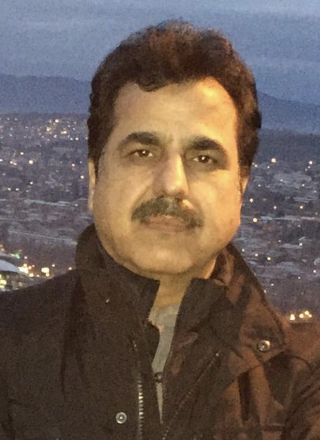Rafiq Jan

Pakistani media is increasingly coming into conflict with the state’s supremacy. The last three years have seen a series of episodes emerging with intriguing timing and intervals. But the intriguing aspect of all this melodrama is inarguably the only one target, the militestablishment.
The intriguing aspect of all such incidents was the follow up in the international media. Their tabloids sold catchy headlines painting Pakistan as “the most dangerous country for journalists”.
From the armed attempt on Hamid Mir in April 2014 to the abduction of
Mati Ullah Jan in July 2020 to the assassination attempt on Absar Alam in April 2021 and the attack on Asad Toor, May 202, the narrative has remained almost the same.
These journalists were attacked for being vocal and critical about the powerful army, the ISI and the agencies of Pakistan, and that they had been receiving threats from Pakistan’s powerful ISI for a long time.
State’s reaction fuels misgivings
Despite denials, the government and the armed forces’ reaction to these serious allegations have been wanting and non-satisfactory. It fuels speculations that no matter how powerful and mighty the media barons are, they are wise enough to discern the fine line and know how to keep away the dangerous territory. Likewise, the authorities cannot afford to wage a protracted war against those media tycoons who are globally seen as the champions of civil rights and free speech activism.
Invidious distinction by international media.
This only worsens negative perceptions about the state of media in Pakistan, which ranks 145 out of 180 countries on the list of the Reporters without Borders (RSF) 2021 press freedom index. Pakistan is ranked among the five deadliest countries for journalists to work, according to RSF, yet another negative to look at Pakistan.
In contratst , when the Egyptian dictator General Sisi gagged the media across the country and jailed dozens of journalists, none of the superpowers or their Arab allies condemned this assault on media.
The price of leadership is criticism; the payoff is solving problems
A combination of factors, which have been discussed exhaustively in the past few days lead to this stage of predicament. The government’s overreaction, instead of a pragmatic approach, always backfired.
From 2008 till 2018 there had been a record number of instances of corruption allegedly by ruling parties and their cronies. Only Between 2008 to 2013 reportedly more than $94 billion were siphoned off by the ruling party in corruption, tax frauds and other fake developments schemes – laundered through the foreign currency accounts. And, both the PPP and PML-N was clever enough to keep certain media on board and also share shared the booty with media houses and journalists in multiple ways.

Honour media but the state is paramount
No doubt, media is by far the fourth power globally. Journalists are a closely-knit family and their voices resonate more coherently than any other clan of this modern society of the world. It has rather become capable enough to challenge the writ of the governments. Worldwide events in the past two decades proved the limitless power of media. Journalists have the supreme power of their pen which can make a huge difference in influencing the mindset of the populace.
The current government has a different kind of challenge to face because it is bracketed with the military establishment. And given the past and present linkages between mainstream parties and the media houses, it is difficult to take on them altogether in an age of uncontrollable flow of information.
This means the government can neither conceal or cap facts, nor hide behind inefficiency and indecisions. Leaders don not avoid conflicts. That is what distinguishes great leaders from conformist leaders. They are not defensive and instead try to approach issues and challenges aggressively when it comes to defending the state.
The authorities can bring back the essence of true journalism and revive the importance of ethics to the media. But that requires the government to raise its performance. An uphill task indeed.
The author is Aircraft Engineer, Author & Planes enthusiast



